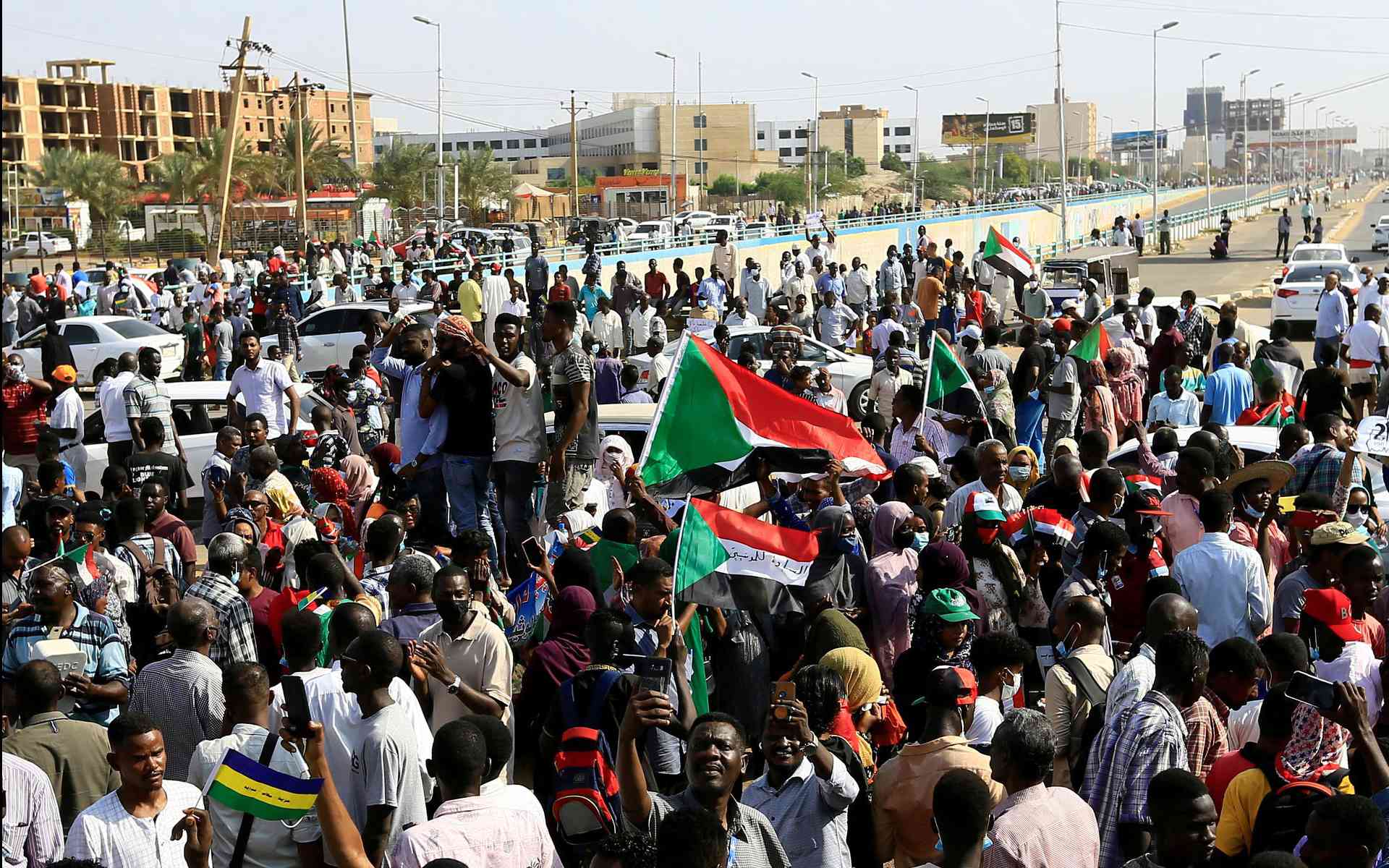
Sudanese demonstrators began gathering on Tuesday ahead of protests on the one-year anniversary of a coup that halted a democratic transition.
Internet services were blocked, according to monitoring group Netblocks, as protests were planned in many cities and towns, including a march on the presidential palace in the capital Khartoum.
The military takeover halted Sudan's transition to democracy following the overthrow of Omar al-Bashir in 2019, and threw an economy already in crisis further into turmoil. Foreign donors quickly suspended relations and the currency tumbled as the government hiked taxes spurring numerous strikes.
A year on, Sudan's military leaders have not appointed a prime minister, while Islamists loyal to Bashir purged from the civil service have returned.
Generals are now engaged in negotiations with the Forces of Freedom and Change (FFC) coalition that had been sharing power prior to the coup. The talks are facilitated by the United Nations and African Union, as well as the "Quad" of the United States, the UK, Saudi Arabia and United Arab Emirates.
- Looming polls turn heat on Mnangagwa
- Financial constraints slow down ICT penetration
- Fresh headache for Mwonzora
- The endemic marginalisation of rural artistes
Keep Reading
The FFC last week presented its vision for a fully civilian-led authority to lead a transition to elections.
But the resistance committees that have sustained the anti-military protest movement with regular demonstrations have mostly rejected talks with the military and demand that its leaders be brought to justice over the killings of over 100 protesters and other alleged violations.







